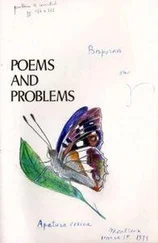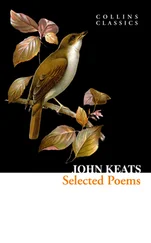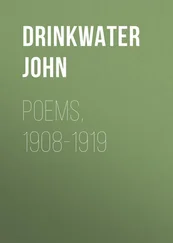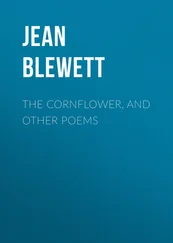John Keats - Poems 1817
Здесь есть возможность читать онлайн «John Keats - Poems 1817» весь текст электронной книги совершенно бесплатно (целиком полную версию без сокращений). В некоторых случаях можно слушать аудио, скачать через торрент в формате fb2 и присутствует краткое содержание. Год выпуска: 2005, Жанр: Поэзия, на английском языке. Описание произведения, (предисловие) а так же отзывы посетителей доступны на портале библиотеки ЛибКат.
- Название:Poems 1817
- Автор:
- Жанр:
- Год:2005
- ISBN:нет данных
- Рейтинг книги:4 / 5. Голосов: 1
-
Избранное:Добавить в избранное
- Отзывы:
-
Ваша оценка:
- 80
- 1
- 2
- 3
- 4
- 5
Poems 1817: краткое содержание, описание и аннотация
Предлагаем к чтению аннотацию, описание, краткое содержание или предисловие (зависит от того, что написал сам автор книги «Poems 1817»). Если вы не нашли необходимую информацию о книге — напишите в комментариях, мы постараемся отыскать её.
Poems 1817 — читать онлайн бесплатно полную книгу (весь текст) целиком
Ниже представлен текст книги, разбитый по страницам. Система сохранения места последней прочитанной страницы, позволяет с удобством читать онлайн бесплатно книгу «Poems 1817», без необходимости каждый раз заново искать на чём Вы остановились. Поставьте закладку, и сможете в любой момент перейти на страницу, на которой закончили чтение.
Интервал:
Закладка:
While 'gainst his forehead he devoutly press'd
A hand heaven made to succour the distress'd;
A hand that from the world's bleak promontory
Had lifted Calidore for deeds of glory.
Amid the pages, and the torches' glare,
There stood a knight, patting the flowing hair
Of his proud horse's mane: he was withal
A man of elegance, and stature tall:
So that the waving of his plumes would be
High as the berries of a wild ash tree,
Or as the winged cap of Mercury.
His armour was so dexterously wrought
In shape, that sure no living man had thought
It hard, and heavy steel: but that indeed
It was some glorious form, some splendid weed,
In which a spirit new come from the skies
Might live, and show itself to human eyes.
'Tis the far-fam'd, the brave Sir Gondibert,
Said the good man to Calidore alert;
While the young warrior with a step of grace
Came up,—a courtly smile upon his face,
And mailed hand held out, ready to greet
The large-eyed wonder, and ambitious heat
Of the aspiring boy; who as he led
Those smiling ladies, often turned his head
To admire the visor arched so gracefully
Over a knightly brow; while they went by
The lamps that from the high-roof'd hall were pendent,
And gave the steel a shining quite transcendent.
Soon in a pleasant chamber they are seated;
The sweet-lipp'd ladies have already greeted
All the green leaves that round the window clamber,
To show their purple stars, and bells of amber.
Sir Gondibert has doff'd his shining steel,
Gladdening in the free, and airy feel
Of a light mantle; and while Clerimond
Is looking round about him with a fond,
And placid eye, young Calidore is burning
To hear of knightly deeds, and gallant spurning
Of all unworthiness; and how the strong of arm
Kept off dismay, and terror, and alarm
From lovely woman: while brimful of this,
He gave each damsel's hand so warm a kiss,
And had such manly ardour in his eye,
That each at other look'd half staringly;
And then their features started into smiles
Sweet as blue heavens o'er enchanted isles.
Softly the breezes from the forest came,
Softly they blew aside the taper's flame;
Clear was the song from Philomel's far bower;
Grateful the incense from the lime-tree flower;
Mysterious, wild, the far heard trumpet's tone;
Lovely the moon in ether, all alone:
Sweet too the converse of these happy mortals,
As that of busy spirits when the portals
Are closing in the west; or that soft humming
We hear around when Hesperus is coming.
Sweet be their sleep. * * * * * * * * *
TO
SOME LADIES.
What though while the wonders of nature exploring,
I cannot your light, mazy footsteps attend;
Nor listen to accents, that almost adoring,
Bless Cynthia's face, the enthusiast's friend:
Yet over the steep, whence the mountain stream rushes,
With you, kindest friends, in idea I rove;
Mark the clear tumbling crystal, its passionate gushes,
Its spray that the wild flower kindly bedews.
Why linger you so, the wild labyrinth strolling?
Why breathless, unable your bliss to declare?
Ah! you list to the nightingale's tender condoling,
Responsive to sylphs, in the moon beamy air.
'Tis morn, and the flowers with dew are yet drooping,
I see you are treading the verge of the sea:
And now! ah, I see it—you just now are stooping
To pick up the keep-sake intended for me.
If a cherub, on pinions of silver descending,
Had brought me a gem from the fret-work of heaven;
And smiles, with his star-cheering voice sweetly blending,
The blessings of Tighe had melodiously given;
It had not created a warmer emotion
Than the present, fair nymphs, I was blest with from you,
Than the shell, from the bright golden sands of the ocean
Which the emerald waves at your feet gladly threw.
For, indeed, 'tis a sweet and peculiar pleasure,
(And blissful is he who such happiness finds,)
To possess but a span of the hour of leisure,
In elegant, pure, and aerial minds.
On receiving a curious Shell, and a Copy of Verses,
from the same Ladies.
Hast thou from the caves of Golconda, a gem
Pure as the ice-drop that froze on the mountain?
Bright as the humming-bird's green diadem,
When it flutters in sun-beams that shine through a fountain?
Hast thou a goblet for dark sparkling wine?
That goblet right heavy, and massy, and gold?
And splendidly mark'd with the story divine
Of Armida the fair, and Rinaldo the bold?
Hast thou a steed with a mane richly flowing?
Hast thou a sword that thine enemy's smart is?
Hast thou a trumpet rich melodies blowing?
And wear'st thou the shield of the fam'd Britomartis?
What is it that hangs from thy shoulder, so brave,
Embroidered with many a spring peering flower?
Is it a scarf that thy fair lady gave?
And hastest thou now to that fair lady's bower?
Ah! courteous Sir Knight, with large joy thou art crown'd;
Full many the glories that brighten thy youth!
I will tell thee my blisses, which richly abound
In magical powers to bless, and to sooth.
On this scroll thou seest written in characters fair
A sun-beamy tale of a wreath, and a chain;
And, warrior, it nurtures the property rare
Of charming my mind from the trammels of pain.
This canopy mark: 'tis the work of a fay;
Beneath its rich shade did King Oberon languish,
When lovely Titania was far, far away,
And cruelly left him to sorrow, and anguish.
There, oft would he bring from his soft sighing lute
Wild strains to which, spell-bound, the nightingales listened;
The wondering spirits of heaven were mute,
And tears 'mong the dewdrops of morning oft glistened.
In this little dome, all those melodies strange,
Soft, plaintive, and melting, for ever will sigh;
Nor e'er will the notes from their tenderness change;
Nor e'er will the music of Oberon die.
So, when I am in a voluptuous vein,
I pillow my head on the sweets of the rose,
And list to the tale of the wreath, and the chain,
Till its echoes depart; then I sink to repose.
Adieu, valiant Eric! with joy thou art crown'd;
Full many the glories that brighten thy youth,
I too have my blisses, which richly abound
In magical powers, to bless and to sooth.
TO * * * *
Hadst thou liv'd in days of old,
O what wonders had been told
Of thy lively countenance,
And thy humid eyes that dance
In the midst of their own brightness;
In the very fane of lightness.
Over which thine eyebrows, leaning,
Picture out each lovely meaning:
In a dainty bend they lie,
Like two streaks across the sky,
Or the feathers from a crow,
Fallen on a bed of snow.
Интервал:
Закладка:
Похожие книги на «Poems 1817»
Представляем Вашему вниманию похожие книги на «Poems 1817» списком для выбора. Мы отобрали схожую по названию и смыслу литературу в надежде предоставить читателям больше вариантов отыскать новые, интересные, ещё непрочитанные произведения.
Обсуждение, отзывы о книге «Poems 1817» и просто собственные мнения читателей. Оставьте ваши комментарии, напишите, что Вы думаете о произведении, его смысле или главных героях. Укажите что конкретно понравилось, а что нет, и почему Вы так считаете.












